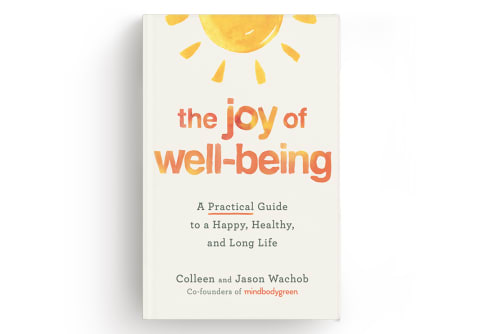Advertisement
Why You Can't Be Healthy Without Social Connections: Findings From Roseto


If you've ever watched The Godfather, or other movies or shows like it, you might have noticed that popular culture has a definite take on Italian immigrants: barrel-chested men with gargantuan bellies; rotund grandmothers carrying overflowing pots of pasta; and chain-smoking, hard-drinking people for whom a party is not complete without thick slabs of meat and cheese. Not to mention all of the guns and exuberant hand gestures.
We're sure that there are plenty of holes in the big-screen version of Italian American life in the mid-20th century, but it turns out that the movies get a few things right. If you can look past the violent plotlines and horribly dated stereotypes, you'll also notice the other images and depictions that crop up—big families who live with each other or near each other and a tight-knit community where trust, religion, and loyalty are valued.
Overall, the images of Italian Americans on the silver screen aren't exactly ones that exude health in the traditional sense. But since we're talking Hollywood, of course there's a plot twist: All those tough guys with the big bellies might just be healthier than you.
Studying the "Roseto effect"
In the real-life town of Roseto, Pennsylvania, scientists and researchers discovered a key to long life hiding in plain sight among Italian Americans: social connection. In the early 1960s, a local physician noticed that all of his patients from Roseto exhibited an almost shocking level of good health. Despite the fact that most of the men worked long, hard days in the slate quarry and their families ate lots of pasta and Italian sausage, smoked cigarettes, and drank copious amounts of wine, there was a surprising lack of heart attacks in this one community.
When he mentioned the strange phenomenon to a friend who was also a medical researcher, he kicked off a host of studies examining the lifestyle and health outcomes of the Roseto community. One study showed1 that in Roseto, the rate of heart attacks in people over 65 was half that of the nation, and for men under 55 there were no cases of heart attack.
Just when we think we've got this whole health and well-being puzzle figured out, here comes Don Corleone...the paragon of longevity?
Don't reach for the cigars and meatballs just yet — there's a bit more to unpack here
At first, the researchers who were working on the Roseto studies were scratching their heads. After all, what could account for such astonishingly low incidences of heart disease? What they found when they went to Roseto to get to the bottom of it would completely change the way that we look at what we now know is a key indicator of health: our relationships.
Researchers hypothesized, and later confirmed1, that what set Roseto apart was that it "displayed a high level of ethnic and social homogeneity, close family ties, and cohesive community relationships."
This community of 1,600 people was founded by Italian immigrants in the late 19th century. And until around the late 1960s, the people in Roseto still lived as if they were in Italy, especially in terms of their social relationships, religion, and multigenerational homes. In a 2015 PBS documentary series about Italian Americans, filmmakers went to Roseto and spoke with elders who had been around for the original study.
In fact, they were there to document what community members call the Big Time, an annual event that gathers together people with ties to Roseto, almost like a giant family reunion. There are parades, parties, and potlucks with lots of—you guessed it—pasta. Beyond the pure enjoyment of food and wine, what is so clear in the documentary is the real secret to the good life—care and connection.
Today, Roseto resembles the rest of America—it's no longer a cultural island—and so do its rates of cardiovascular disease. Since the early '60s, when Roseto's social cohesion started to break down, the mortality rates from heart disease also rose in the younger generation of Rosetans. The landmark study of Roseto that spanned 50 years tracked both mortality rates and the changing social traditions, confirming all of the earlier findings of other studies: Older generations of Rosetans who benefited from that close-knit community in midcentury were far more protected from heart disease than their children.
This phenomenon of increased heart health in tight-knit communities is now referred to as the Roseto effect, and the studies' core findings about the importance of social connection have been affirmed again and again throughout the years.
What we can all learn from Roseto
The story of Roseto shows that when you look at life and health holistically, you have to consider everything—not just what you put in your mouth.
We see this demonstrated by later generations of Rosetans, who began to skew closer and closer to the national average as the decades marched on. The Roseto of the '50s was more like a time capsule, or a transplanted community from Italy, than it was reflective of contemporary American communities, which were swiftly becoming more atomized.
After all, the '50s gave birth to the concept of the nuclear family. People stopped living in multigenerational homes, and families began to spread out, building their own oases in huge suburban neighborhoods.
They were going to work in all different directions, coming home, and waking up and doing it all over again without the same level of community engagement. Life in post–World War II America was more focused on efficiency, productivity, and wealth building than ever before. Family beyond your 2.5 kids was less and less of a focus, and communities were less intertwined.
Sadly, as the decades wore on, this more isolated, less community-oriented way of life has only deepened. The advent of the internet and social media promised greater connection but delivered less. So, it's not that nutrition and exercise don't matter. They do, greatly. Especially when you are living without the security and stress resilience that communities like Roseto benefit from. What allowed them to eat the way they did and still live long healthy lives was the buffer to their stress response system that community and family provided.
Seventy years later, we know beyond a doubt that the experience of strong social connection and the impact it has on our nervous system is fundamental to health and happiness. Without it, our hearts are less relaxed and full, and as a result, our biological systems are more vulnerable to death and disease.
The takeaway
Roseto was the tip of the iceberg, beckoning us to look more closely at the health and happiness implications of our relationships with other humans. New studies and research in the fields of immunology, neurobiology, and psychology have shown us that we need to weigh social connection equally (if not more) with other health and wellness practices.
Understanding, of course, that we're never going to replicate Roseto, we can only learn from it and begin to integrate into our own lives its profound lessons about what it means to live the good life.
Excerpted from The Joy of Well-Being by Colleen Wachob and Jason Wachob. Copyright © 2023 by Colleen Wachob and Jason Wachob. Reprinted with permission of Balance Publishing, an imprint of Hachette Book Group. All rights reserved.


















